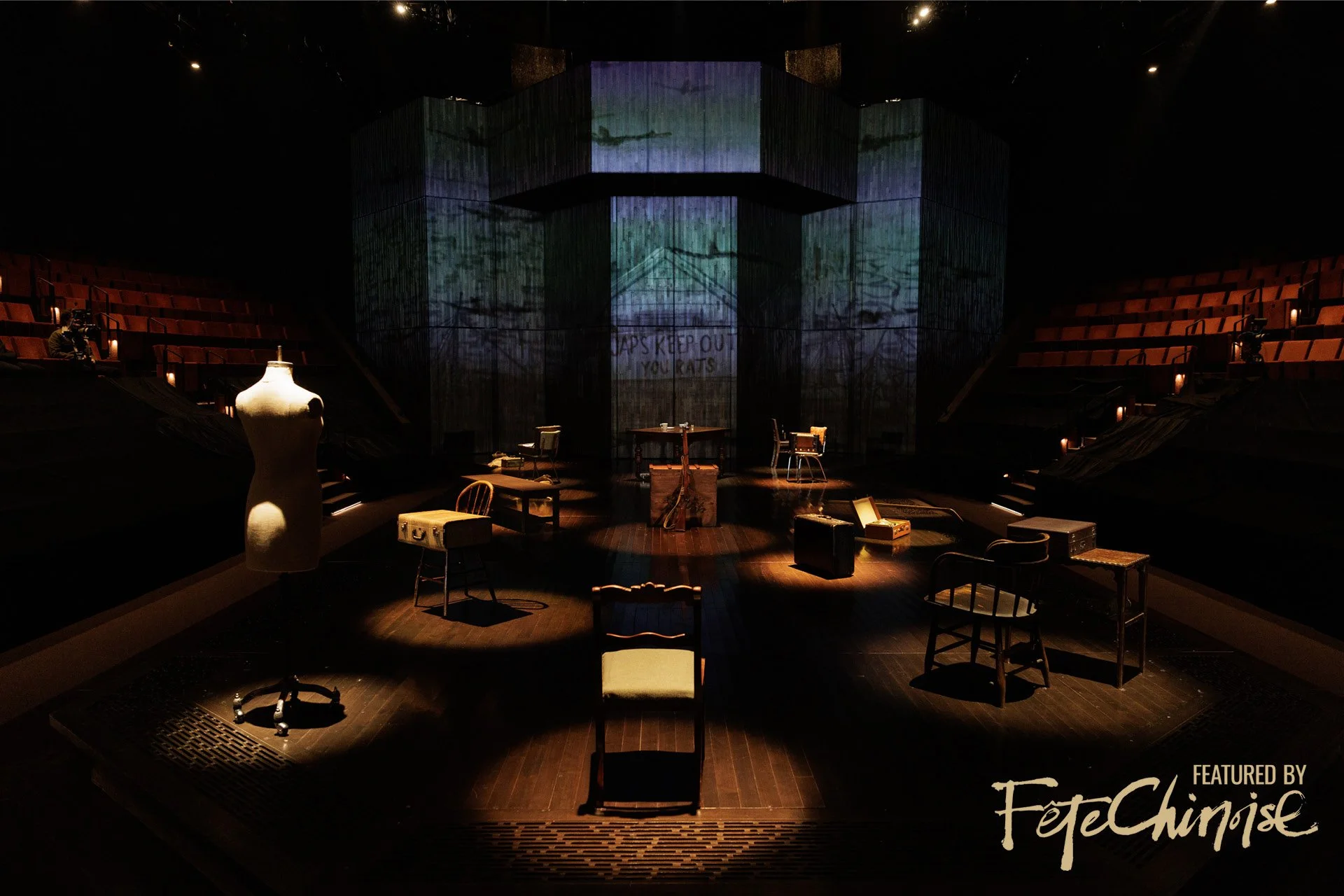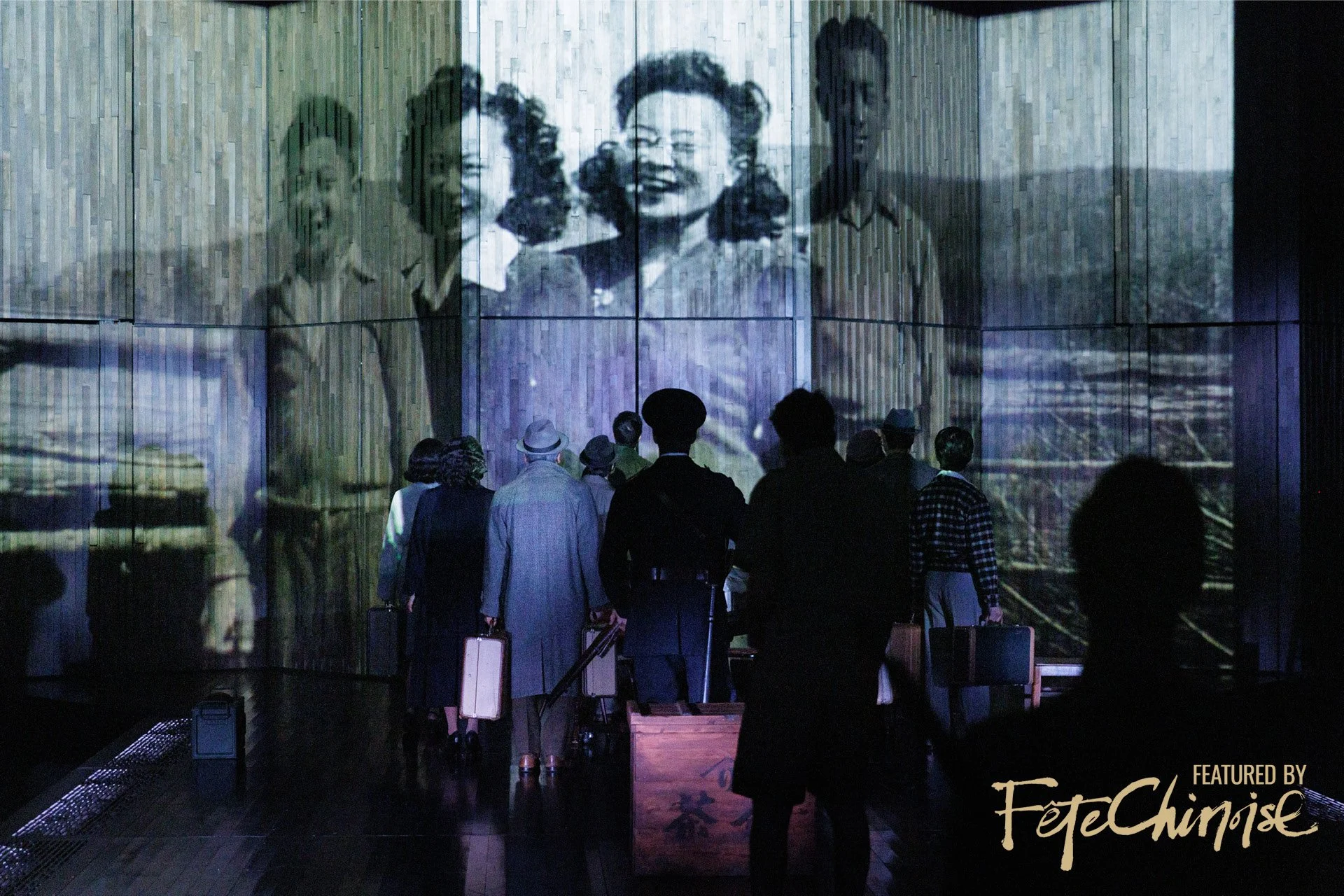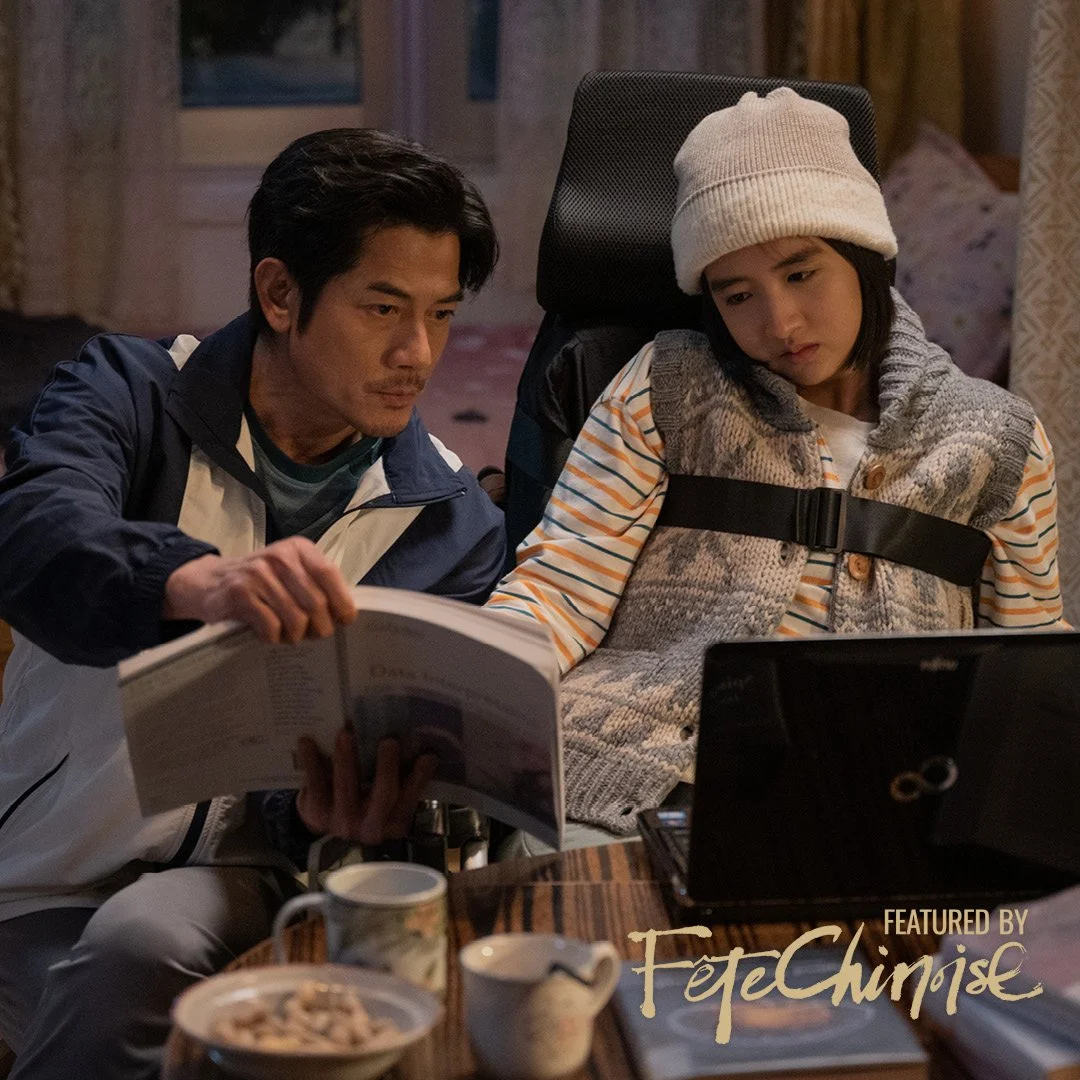Stratford Festival’s Forgiveness Explores War, Identity, and Family
Written by Maggie Ho
IMages Courtesy: Stratford Festival, Photography by David Hou
Now Running Until September 27, 2025 at Tom Patterson Theatre, Stratford
From the moment the audience steps into the Tom Patterson Theatre, they are immersed in an atmosphere thick with memory and history. The two leading actors move solemnly along a runway-like stage, drawing the audience’s gaze to a few simple yet carefully chosen props. Even before the performance begins, the stage design has already captured everyone’s attention.
What follows is nearly three hours of tightly woven storytelling that spans three generations and crosses the Pacific. The play traces the intertwined fates of two families across Canada, Hong Kong, and Japan, framed by the upheavals of the Second World War.
Based on Mark Sakamoto’s acclaimed memoir and written by playwright Hiro Kanagawa, Forgiveness reveals the intimate lives of Mitsue Sakamoto—a Canadian-born Japanese whose youth is shattered by internment camps—and Ralph MacLean, a young soldier sent to defend Hong Kong who is later captured in a Japanese POW camp. Their stories, both epic and personal, converge decades later when their children fall in love. The question lingers: after all these years, how do you stand before someone who reminds you of those who once broke you?
The production makes excellent use of the signature elongated thrust stage, bringing memory to life and revealing multiple perspectives side by side. Past and present, tragedy and resilience, war and home are interwoven. Forgiveness shows that reconciliation is never simply a matter of two opposing sides. On one hand, Japanese soldiers brutalize Canadian prisoners of war; on the other, Japanese Canadians in British Columbia endure unjust persecution by their own government. This mirrored storytelling underscores the complexity of history and the shared humanity within it.
The performance is exceptional. Jeff Lillico, as Ralph MacLean, brings to life a vivid transformation: from a naive country youth to a soldier scarred by captivity, and finally to a father who rediscovers joy and compassion through his daughter. Yoshie Bancroft, as Mitsue Sakamoto, moves from an innocent, dreamy teenage girl to a woman hardened by the suffering and anger of internment, ultimately becoming a strong mother who chooses to forgive yet never forgets. She embodies a mix of Scarlett O’Hara’s resilience and the poised, enduring strength of a Yamato Nadeshiko, the ideal of traditional Japanese femininity.
To tell a story that spans time and geography, most of the cast assume multiple roles. Hiro Kanagawa portrays both Mitsue’s loving, hardworking father and a Japanese commandant who must fulfill his duty while quietly doubting its morality. Steve Hao transitions seamlessly from a bullied Chinese immigrant laundryman to a ruthless Japanese soldier, and finally to a heartbroken Japanese Canadian whose home and dreams are destroyed. This multi-role casting is a highly effective artistic choice, highlighting the actors’ range while deepening the audience’s engagement.
Visually, the production is both intimate and striking. Projections, lighting, and sound transform the space effortlessly into a dining room, farmland, battlefield, or prison cell. Minimal props spark the imagination: a warm wooden dining table and rice box evoke the essence of a Japanese household, while a simple fishing net, paired with light and sound, conjures the family’s fisherman heritage during Mitsue’s father’s passing. Each scene flows seamlessly, with minimal props yet a visual richness that invites the audience to imagine the world fully.
At its core, Forgiveness is a thoughtful, reflective piece, especially relevant today when politics and misunderstandings can so easily fuel prejudice and division. The play reminds us that grace, not resentment, allows us to move forward. Masterfully crafted, and impeccably performed, it leaves the audience with something deeply profound to carry home.



















Fans of the classic TVB series A Step into the Past have long awaited this moment, and it’s finally here! Back to the Past is the highly anticipated cinematic sequel that brings the beloved characters and thrilling storylines of the original 2001 series to the big screen.